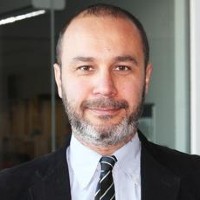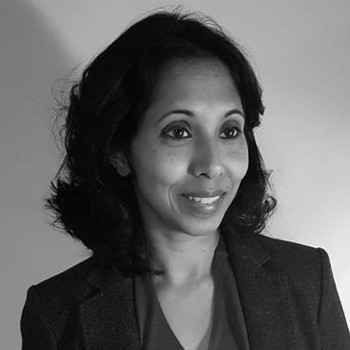THIS EVENT IS FULLY BOOKED
We have overbooked to allow for non-attendees and will not be operating a waiting list. We hope to be able to release some content or video of the event after it has taken place.
Launch of City St George's
We invite you to attend the public launch of City St George's following the merger between City, University of London and St George's, University of London which took place on 1 August 2024.
We are now ‘City St George’s, University of London’.
We welcome an eclectic panel of experts to discuss How can AI contribute to the future health of the nation.
Professor Enrico Bonadio, Professor of Intellectual Property Law and on the Management Board at the Institute for Creativity and AI at City St George’s
Dr Elinor Carmi, Senior lecturer in Data Politics and Social Justice at City St Geroge's, previous advisor to WHO on data literacy, disinformation and infodemiology.
Professor Amanda Goodall, Professor of Leadership and creator of the Executive Masters in Medical Leadership at Bayes Business School. City St George's
Professor Caroline Ling Li, Professor in Biomedical Engineering, City St George's and currently researching high blood pressure treatment through innovative AI-driven smart sensors.
Professor Chris Owen, Professor of Epidemiology in the Population Health Research Institute, City St George's - leading the way on using AI to predict heart disease and diabetes risk from a simple eye scan.
Dr Divya Srivastava, health economist at City St George's, researching digital health technologies including AI involving methods for analysis and health financing.
Dr Hyunsun Yoon, Senior Lecturer in Strategic Communications, researching older adults and digital communications including how to use the GenAI to help dementia carers
The event will be chaired by Mark Honigsbaum, medical historian, journalist and academic.
City St George's
City St George’s, University of London is the university of business, practice and the professions. A powerful multi-faculty institution, City St George’s has a distinctive focus on professional education and research at the frontier of practice.
Led by Professor Sir Anthony Finkelstein, City St George’s now educates more than 27,000 students from over 150 countries. The University is one of the largest higher education destinations for London students and one of the most significant suppliers of the health workforce in the capital.
Northampton Square and environs will be the Clerkenwell campus. Bayes Business School (Bunhill Row and Finsbury Square) will be known as the Moorgate campus and the current St George’s campus will be referred to as the Tooting campus, where we share a clinical environment with a major London teaching hospital.
Speakers
Professor Enrico Bonadio

Enrico Bonadio is Professor of Law at City St George’s University of London. He teaches, researches, and advises in the field of intellectual property (IP) law. His research agenda is wide-ranging, having recently focused on the intersection between IP and new technologies (including artificial intelligence). He is the author of numerous publications on several aspects of IP law, including books, academic articles, book chapters and journalistic pieces.
Enrico is Deputy Editor in Chief of the European Journal of Risk Regulation and member of the Editorial Board of the European Intellectual Property Review. He regularly joins teaching and training missions organised by the World Intellectual Property Organization. He has been delivering classes and talks in more than 140 universities and research institutions in six continents and his research has been covered by several media outfits including CNN, Wall Street Journal, Financial Times, Washington Post, New York Times, Reuters, South China Morning Post, BBC, The Times, The Guardian, The Independent, Politico and Associated Press.
Dr Elinor Carmi

Elinor Carmi is Senior Lecturer in Data Politics and Social Justice at City St George’s, University of London. She is a digital rights advocate, feminist, researcher and journalist who has been working on data politics, data literacies, data feminism, data justice and internet governance. She has successfully won grants from UKRI, ESRC, and Nuffield Foundation together with colleagues from academia and NGOs. Her work contributes to emerging debates in academia, policy, health organizations and digital activism.
In 2020, she was invited to give evidence on digital literacy for the House of Lords Committee on Democracy and Digital Technologies. In 2020 she was also invited by the World Health Organization as an expert on data literacy and disinformation to the first scientific discussion on infodemiology. Between 2021-2023 she won a Parliamentary Academic Fellowship working with the UK’s Digital, Culture, Media & Sport Committee, and from May 2024 she has been an Expert Member of the UK Information Commissioner’s Office Technology Advisory Panel.
Professor Amanda Goodall
Amanda Goodall PhD is Professor of Leadership at Bayes Business School (formerly Cass). Her main work analyses the relationship between leadership, management and organisational performance. It shows that leaders who have a deep understanding of the core business (‘expert leaders’) are associated with better organisational performance, higher employee job satisfaction and fewer quits.
Being a good manager alone is not sufficient. Evidence supporting the ‘theory of expert leadership’ comes from across business, healthcare, universities, Formula 1, basketball, and among professionals. Amanda has also done research into gender differences in pay and negotiation, and she writes on diversity more broadly. Amanda publishes in academic journals, practitioner publications (e.g. HBR) and in the media (e.g. Financial Times).
Her recent book “Credible: The Power of Expert Leaders”, won the SABEW 2023 Best in Business Book Award for Management and Leadership. She has been a research fellow at Cornell, IZA Institute of Labor Economics in Bonn, University of Zurich and Yale University. Based on her research, she created the Executive Masters in Medical Leadership a program tailored to the needs of medical doctors, and she is about to launch the Executive Masters in Leadership for the Creative Industries. Her research is available at www.amandagoodall.com
Professor Caroline Ling Li
Caroline Li PhD is Professor of AI inBiomedical Engineering. She has extensive experience in leading interdisciplinary research through building the multidisciplinary lab Brain|Cognition|Computing (BC2) Lab, focusing on understanding human health and wellbeing by developing advanced data analytics methods for domain-specific applications, such as physical and cognitive states identification and tracking, AI for clinical applications, novel wearable technologies in health-related areas.
She has been active in the international research community. She worked under large scale project including the £6m EPSRC project “ESPRIT with Pervasive Sensing”. She also works closely with industry and organisations to deliver research impact, including winning of Samsung GRO Award, the DASA funding awards, EIRA funding supported by Research England, Charity funded project (i.e. the £1.3m project funded by the LifeArc), Co-PI of a large-scale (over £5m) international research council programme grant in delivering human physiological sensing into the society with advanced biomedical signal processing and AI.
She is actively developing cutting-edge technologies in how human interact with the world using wearable devices. She is the winner of the British Council “Showcase Your Innovation” bid with the project of the brain generated modern art using EEG signals. As the Chair of IEEE Computing Society in UK and Ireland, Prof Li actively serves the academic community and continues to push the boundaries of biomedical engineering in shaping the future of healthcare technology.
Professor Chris Owen
Professor Owen’s research focuses on non-invasive assessment of retinal vascular function, by measuring the size and shape of blood vessels from retinal images, so called retinal vasculometry. He was part of a team who developed an automated AI-based retinal image analysis system to assess large volumes of fundus images from large cohort studies.
This allowed examination of how retinal vessel characteristics relate to disease risk factors and outcomes, informing how AI-based analysis of retinal images could be harnessed for early disease detection, particularly for cardiovascular disease. Ongoing projects include evaluating AI systems for diabetic retinopathy detection in the NHS Diabetic Eye Screening Programme (ensuring they operate accurately and equitably), and predicting diabetes complications using AI, retinal images, genetics, and electronic health record data.
Over the next decade, he aims to expand AI applications for predicting health outcomes, particularly in large community cohorts, and implement AI systems into screening programs, particularly for diabetic eye screening.
Dr Divya Srivastava

Dr Divya Srivastava is Lecturer/Assistant Professor in Research Methods at City St George's. She is a health economist with expertise in health financing, digital health technologies and comparative health policy. Divya's current research looks at the intersection between economics, digital health technologies including AI involving methods for analysis and health financing. She leads the AI and Digital Health Lab in the Centre for Healthcare Innovation Research at City St George's.
She is the founder of the Special Interest Group in the Economics of Digital Health Technology under the auspices of the International Health Economics Association. She has worked for the Organisation for Economic Cooperation and Development (OECD), where she led projects on provider payment reform and geographic variations in health care to understand health system performance, the WHO European Observatory on Health Systems and Policies, and for national institutions (Canada, UK).
Dr Hyunsun Yoon

Hyunsun is a Senior Lecturer in Strategic Communications at the Department of Media, Culture and Creative Industries, City St. George's, University of London. As a Senior Fellow of the Higher Education Academy (SFHEA), she has extensive experience in teaching and researching media, advertising, and marketing communications. Hyunsun's work has been shared both nationally (in the UK) and internationally through continued collaborations and public engagement with the UN Economic and Social Commission for Asia and the Pacific (ESCAP), the European Institute for Commercial Communications Education (EdCom), and the History of Advertising Trust (HAT).
Her international profile has a foundation in using education to empower under-represented communities and to improve the public experience of digital communications. DM Trust funded project on digital vulnerability and empowerment amongst older consumers and the BA/Leverhulme grant on minority ethnic older adults' perception of COVID-19 public health campaigns are such examples.
Mark Honigsbaum
Dr Mark Honigsbaum is a medical historian, journalist and academic with wide-ranging interests encompassing health, technology, science and contemporary culture. A regular contributor to The Lancet and The Observer, he is the author of five books including Living With Enza: The Forgotten Story of Britain and the Great Flu Pandemic of 1918 (Macmillan, 2009) and The Pandemic Century: One Hundred Years of Panic, Hysteria and Hubris (Hurst; Norton, 2019) which was named a “science book of the year in The Times. A former Wellcome Research Fellow, he has taught at the University of Zurich and Queen Mary University of London and is now an honorary lecturer at City St George’s.
Attendance at City St George's events is subject to our terms and conditions.
